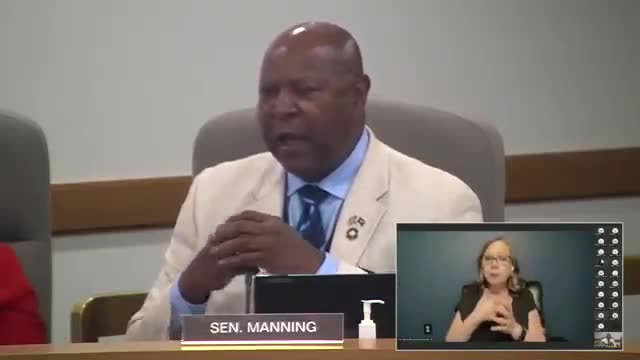Oregon legislators finalize transportation bill addressing transit and infrastructure needs
June 27, 2025 | Legislative, Oregon
This article was created by AI summarizing key points discussed. AI makes mistakes, so for full details and context, please refer to the video of the full meeting. Please report any errors so we can fix them. Report an error »

Oregon's Joint Committee on Transportation Reinvestment made significant strides during their meeting on June 27, 2025, focusing on enhancing public transit and infrastructure maintenance. A key highlight was the committee's commitment to improving access for Oregonians without automobiles, particularly those needing transportation for medical appointments and educational purposes.
Committee members emphasized the importance of compromise in crafting effective legislation. One member noted the ongoing effort since 2017 to find a "perfect bill," acknowledging that while no bill is flawless, the current measure reflects substantial collaboration and input from various stakeholders. This approach aims to address the needs of vulnerable populations, including veterans requiring access to healthcare facilities.
The committee also discussed the necessity of maintaining and preserving infrastructure, with a goal to replace bridges more frequently than the current 900-year cycle. This initiative is expected to contribute to reducing greenhouse gas emissions and enhancing transit services for the 30% of Oregonians who do not drive.
The proposed amendments, referred to as "dash 28," are designed to ensure that transit agencies remain fully funded, thereby maintaining current service levels. This decision is crucial for supporting those who rely on public transportation, reinforcing the committee's commitment to equitable access across the state.
As the committee moves forward, the focus will remain on implementing these measures effectively, with the potential for significant positive impacts on the community and the environment. The discussions from this meeting underscore a proactive approach to transportation challenges in Oregon, setting the stage for future developments in public transit and infrastructure.
Committee members emphasized the importance of compromise in crafting effective legislation. One member noted the ongoing effort since 2017 to find a "perfect bill," acknowledging that while no bill is flawless, the current measure reflects substantial collaboration and input from various stakeholders. This approach aims to address the needs of vulnerable populations, including veterans requiring access to healthcare facilities.
The committee also discussed the necessity of maintaining and preserving infrastructure, with a goal to replace bridges more frequently than the current 900-year cycle. This initiative is expected to contribute to reducing greenhouse gas emissions and enhancing transit services for the 30% of Oregonians who do not drive.
The proposed amendments, referred to as "dash 28," are designed to ensure that transit agencies remain fully funded, thereby maintaining current service levels. This decision is crucial for supporting those who rely on public transportation, reinforcing the committee's commitment to equitable access across the state.
As the committee moves forward, the focus will remain on implementing these measures effectively, with the potential for significant positive impacts on the community and the environment. The discussions from this meeting underscore a proactive approach to transportation challenges in Oregon, setting the stage for future developments in public transit and infrastructure.
View full meeting
This article is based on a recent meeting—watch the full video and explore the complete transcript for deeper insights into the discussion.
View full meeting
